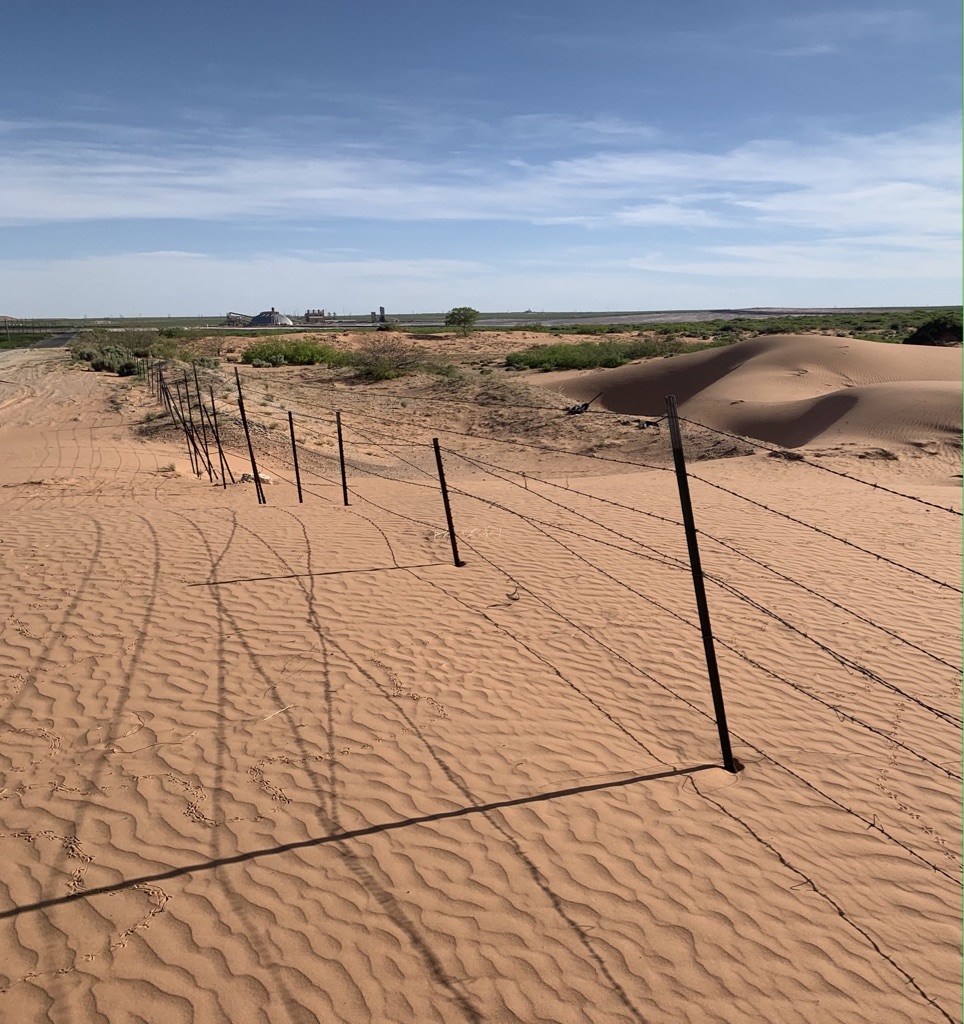September 20, 2023 Austin Miller
Noon Talk
Salt & Sand: Deep History in the Permian Basin
Austin Miller, PhD candidate, SMU Clements Department of History
12 noon to 1 PM
The Texana Room, Fondren Library, 6404 Robert S. Hyer Lane, SMU

For better (at times, economically) or worse (almost always, environmentally), the Permian Basin has become synonymous with fossil fuel extraction. Over the last four decades, the region—which creeps across West Texas and into southeastern New Mexico—has ranked among the highest-yielding hydrocarbon zones in the world. But despite its pervasive presence in the Permian Basin, this project is not preoccupied with oil. It is instead focused on a far more common mineral resource: salt. Overshadowed by the region’s abundant fossil fuel stores, salt is a neglected cornerstone of socio-economic and political development in the Permian Basin. As with hydrocarbon extraction and its associated industries, salt-related activities are directly connected to a slate of escalating environmental concerns ranging from the near-term to the distant. Throughout the vast fathoms of planetary time, the evaporation of primordial oceans left behind massive deposits of salt, much of which was gradually interred by the slow forces of sedimentary accumulation. Lingering salt flats attracted animal populations and Paleolithic human inhabitants, creating ecological communities of interdependence that spanned several millennia. In the twentieth century, corporations transformed this geological remnant into a marketable commodity. As the potash industry began to shrink, the primary use of the Permian Basin’s salt deposits shifted from extraction to insertion. Market-based mining was eventually overtaken by new exploitations of the salt beds after the dawn of the atomic age—initially as a subterranean laboratory for atomic energy research, and later as a repository for the permanent storage of nuclear waste.Viewed from this zoomed-out perspective, the salt beds of the Permian Basin function as a vital link between the region’s deep past and its deep future.
Austin Miller is a PhD Candidate, a University PhD Fellow, and a 2023-24 Moody Dissertation Fellow. He studies the American West, Southwest Borderlands, and Environmental History. Before arriving at SMU, Austin earned his BA in Honors Interdisciplinary Liberal Arts & History from the University of New Mexico in 2015. After spending a year teaching and coaching in his hometown of Carlsbad, NM, he returned to UNM, where he completed his MA in the history of the American West in 2018. He is currently at work on his dissertation, "Salt and Sand: Energy and the Environment of the Pecos Valley," which traces the multifaceted roles of energy extraction and production in the development of eastern New Mexico and West Texas.
Free and open to the public. No reservations necessary. Questions? Email swcenter@smu.edu.